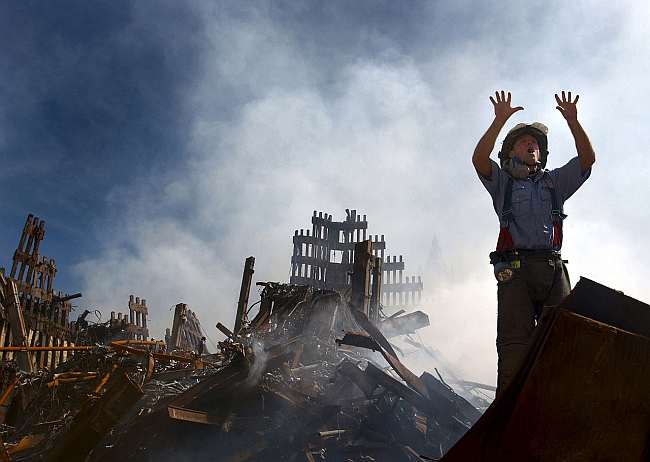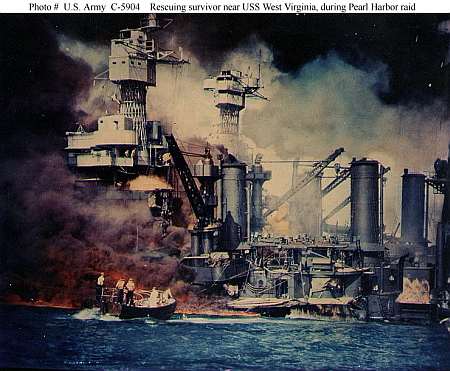Do you remember what you were doing at the precise moment when you heard about the 11 September 2001 terror attacks on New York and Washington? I do – and I’m not American. I’m a Kiwi. But I remember. Here in New Zealand, on the other side of the date-line, initial news broke in the early hours of 12 September. My wife – listening to overnight talkback radio on earpieces – heard the news and jabbed me in the ribs. ‘Wake up, a plane’s hit a building in New York.’
Thinking about tragic accidents, we got up to see whether anything was on TV. It was. And then the news got worse. Way worse. The fact that there was live coverage, here in New Zealand, underscored the scale of the tragedy as a world event.

That reveals the huge dimension of those events 13 years ago. A human tragedy of appalling scale that became a defining moment not just for New York, not just for the United States – but for the planet. One that helped shape the first decade of the twenty-first century for everybody in the developed world, not least because of the behaviours, attitudes and oppositions that followed, ranging from tighter security for air travellers to wars in Iraq and Afghanistan.
The time is not yet ripe to consider these events history, for they are not. But when they are – in two, three generations, when young children view 2001 much as we view 1941, a distant time of grandparents and great grandparents – how will we see the 9/11 attacks then?
The answer, to me, emerges from the way that history, for professional historians, is all about meaning – about finding the broad shapes and patterns that turn the world of the past into the world of the present. These patterns seldom match the number system we use to count the passing years.
When we look at history that way we cannot go past the work of Eric Hobsbawm, who was to my mind perhaps the greatest historian of the twentieth century. I do not make such statement lightly. He took the long view. The historian’s view. A view divorced from the round-number dates into which we usually divide the past, like the end of a decade or a century.
For Hobsbawm, centuries were defined by the patterns of social and economic trends. That was why he called the nineteenth century a ‘long century’, marked by its ‘age of revolution’. To him, this century began in 1789 with the revolution that ended the ancien regime in France and which began a pattern of industrial-driven social dislocation and revolt. It ended in 1914 when the ‘guns of August’ heralded the end of the old European order in its entirety. Of course the trends that led to these pivotal moments pre-dated the specific instant by decades. Nothing, historically, comes out of a vacuum. But these dates offered defining events that, for Hobsbawm, brought the wider underlying trends into a decisive and overt reality.

Following the same logic, Hobsbawm also argued that the twentieth century was ‘short’ – beginning in 1914, with that collapse of the old order and the rise, in its place, of a tripartite world in which democracy was initially on the losing side of totalitarian fascism and communism. That resolved with the victory (luckily) of democracy – an event Hobsbawm argued was marked by the collapse of the Soviet Union, the revolutionary state that had emerged from the First World War.
The decisive date, for Hobsbawm, was the formal end of the Cold War in 1992. By this reasoning the twenty-first century began in 1993. But I wonder. We cannot know our future – cannot say whether there will be any long and over-arching socio-political pattern to the twenty-first century. But so far, one does seem to be emerging, for the early part of it at least.
Like Hobsbawm’s long and short centuries, this shape has been defined by trends bubbling away well before the pivotal moment. They were evident for quite some time through the late twentieth century, partially masked by the over-powering priorities of the Cold War. But if we want to point, in Hobsbawmian fashion, to a defining moment – a point where those underlying issues suddenly became present and urgent in everyday consciousness, it has to be 9/11. Sure, that leaves us with a 9-year interregnum after the end of the twentieth century – but, as I say, history at the thematic level never does tidily match up with numeric dates or round numbers.
And will future historians look back on the twenty-first as a long century? A short one? That’s up to us, really – meaning, everybody on the planet – and the choices we make.
Copyright © Matthew Wright 2014
I’m very happy to see this post. In the comments on my site, I’ve been telling people that this was not only an attack on the US. This was an assault on anyone who does not follow their fanatical ideology. I had no idea it received such coverage in New Zealand. Thank you.
LikeLike
For us, here in Western Australia, it was about 9 in the evening. I was on the computer (as I often am LOL) and the page I wanted, was SO slow loading. When it did, there was a picture of a plane going into the side of one of the towers. I thought someone had Photoshopped it, and was cross. The next morning, and for weeks after the reports kept coming… as you say, live.
I found out later that my daughter had woken her children to see it. (She had been watching TV and it was ‘interrupted’ with the news.) She new it was world-changing.
By the way, I also remember what I was doing when President Kennedy was shot. 🙂
LikeLike
I was in the local Record Office researching 18th century buildings. I couldn’t get my head into the right century for hours. All the way home I had to keep asking people if they had heard, if it was true.
LikeLike
I find myself not so interested in the question of how we define the beginning or end of a century, because it depends so much on which particular and somewhat arbitrary aspect of the times we use to define that point: geopolitical and social (as Hobsbawm seems to prefer), economic, technological, artistic? But I do find the question of when “history” starts quite interesting. Some would say it begins (in some trivial sense) in the immediate past—like yesterday. I think it begins when we start to try to understand the past events in a disinterested way (though we can only approach that, never attain it). You could say it begins when we start to gain perspective on the past event—but this is subjective. I remember very well on 9/11 how short a time passed between the simple reporting of the event and the “packaging” of the event in various ways. Within a day we in the US were describing the event in terms of heroism, patriotism, terrorism, etc., and people were framing it in whatever way suited their personal and political motives. But this immediate “packaging” is not the same as the honest effort to understand and place in context—the job of the historian.
LikeLike
Hi Jenny – insightful comment, and I agree with you. To my mind the problem for historians is getting the perspective of distance and the ability to find the wider shapes and patterns. It’s a key issue relative to the ‘philosophy’ of history, I’ve had to tackle it in a number of my books. It’s worth further discussion, more than in this comment thread, so I’m going to run a new post within the next week to kick off a fresh discussion. Hope you’re able to contribute to the comments for it, thanks.
LikeLike